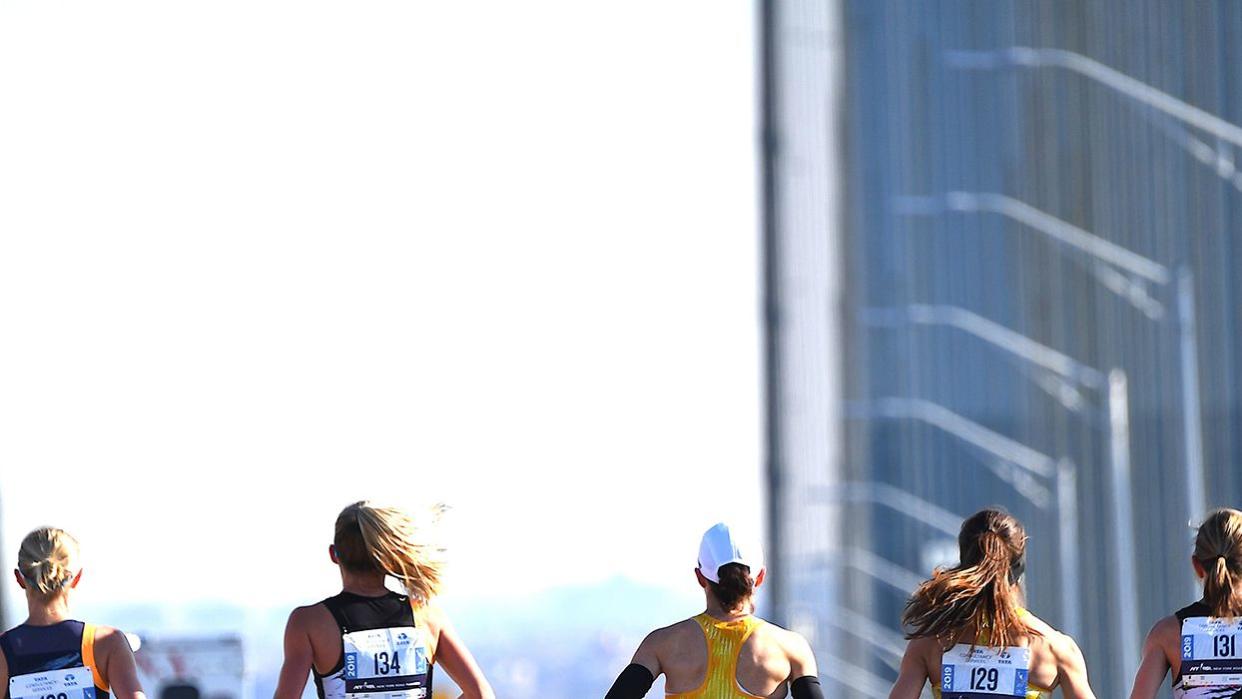What Is the Average Marathon Time?

JOHANNES EISELE/Getty Images
Runner Molly Seidel recently qualified for the 2020 Tokyo Olympics while running her first marathon ever! She finished the marathon distance at the Olympic Trials in Atlanta in 2 hours 27 minutes and 31 seconds, which means she averaged a 5:38-minute pace. Cue collective jaw drop.
Obviously Seidel's time is pretty atypical for a marathon virgin. In order to secure a spot at the Olympics, Seidel (who is a pro runner) had to finish well under the average time for a full marathon. She qualified for the Olympic trials for the marathon with a previous half marathon time of 1:10:27, then earned one of three spots at the Olympics by finishing second in the trials. Yes, someone ran the course even faster still.
If that sounds insanely fast, it is.
The average recreational female marathon runner finishes in nearly double the time that Seidel took to finish at the trials, according to data collected from RunRepeat and World Athletics (formerly the International Association of Athletics Federations). For its first report on running data, The State of Running 2019, RunRepeat drew from more than 107 million race results from around the world between 1986 and 2018. It included only recreational runners, omitting any results from elite athletes, to avoid skewing the numbers. The results? The average marathon time around the world in 2018 was 4:32:29. To break that down further, in 2018 the average men's marathon time was 4:52:18 and the average women's marathon time that same year was 4:48:45.
Somehow, despite those awe-inspiring figures, according to the report, runners have actually never been slower. A line graph shows that the average marathon time has been trending upward since 1986 when it was 3:52:35. (Related: What I've Learned Running Races As a Woman In 10 Different Countries)
If you're interested in a more micro look at how fast most people are running, the report also compared average pace, or how long it takes to run a given mile. The average men's pace for a full marathon was 6:43 per kilometer (about 10:48 per mile) and the average women's pace was 7:26 (11:57 per mile). Speedy!
For comparison, according to Strava's 2018 Year In Sport, the average mile pace for runners using its app in 2018 was 9:48, with a 10:40 average for women and a 9:15 average for men. Those findings take into account runs of all durations uploaded by beginner to advanced runners.
RunRepeat's State of Running, which also included stats from 5Ks, 10Ks, and half-marathons, offers some interesting insight beyond average finishing times. In 2018, there were more female than male runners for the first time in history–50.24 percent of runners, to be exact. (Related: The 12-Week Marathon Training Schedule for Intermediate Runners)
Another interesting tidbit: Peoples' reasons for signing up for races might be shifting. In a post summarizing the findings, lead researcher Jens Jakob Andersen noted that finishing times are getting slower, people traveling to get to races has increased, and fewer people are running races on milestone birthdays. Together, these factors could suggest a shift from running for competition/achievement to running for the experience, wrote Andersen.
Running a marathon (heck, just training for one!) is impressive regardless of how you measure up to the average marathon time. The average marathon runner might be finishing at 4:32:29, but the average person would never even dream of tackling 26.2 miles at all—remember that the next time you find yourself feeling disappointed by the numbers on your smartwatch.

